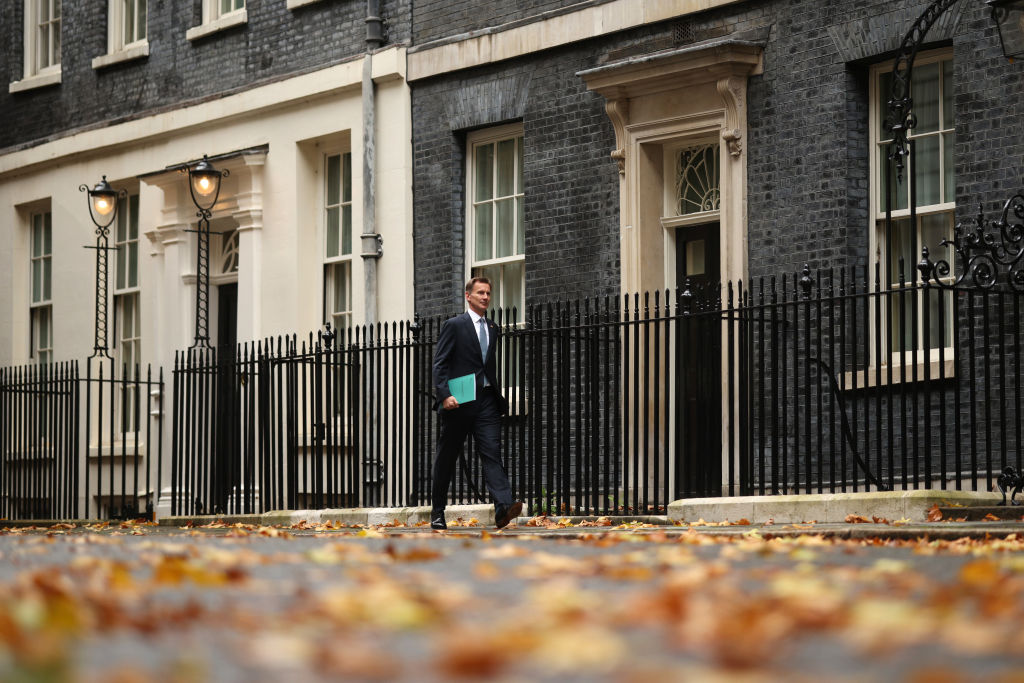The Chancellor Jeremy Hunt has woken up to a harsh set of front pages this morning following his Autumn Statement, with the Mail accusing the Tories of ‘soaking the strivers’ and the Telegraph lead headline quoting an economist who says the Chancellor has combined ‘the rhetoric of George Osborne and the policies of Gordon Brown’.
In particular the Chancellor has come under fire for raising the tax burden to a post-war high while also overseeing what the Office for Budget Responsibility says will be the biggest fall in living standards over the same period.
The Chancellor therefore set out this on the morning broadcast round to steady the ship and see off criticism from the Tory backbenches.
Addressing the criticisms of his Autumn Statement raising the tax burden, Hunt told Sky News that ‘there is nothing Conservative about spending money that you haven’t got.’ He also added that his reforms were necessary to stave off inflation and restore economic stability:
‘There is nothing Conservative about not tackling inflation. There is nothing Conservative about ducking difficult decisions that put the economy on track.’
Meanwhile on the Today programme, Hunt denied that his budget was a ‘raid’ on working people and said that it wasn’t possible to raise £25 billion by only taxing the wealthiest. He argued that while he had asked wealthier people to pay more, his economic programme was a ‘very balanced package’ that would support people on the lowest incomes and help with people’s fuel bills:
‘What we are doing with this package… is to ask people who have more to contribute more but also a big package to support people on the lowest incomes, big increases in the national living wage, the triple lock for pensioners, big help with people’s fuel bills next year and support for the NHS and schools.’
Hunt suggested that he was not comfortable with raising taxes, but that ‘sound money’ was more important to the economy:
‘As a Conservative all tax rises are difficult for me because I think we should be moving to a low tax economy. But I have made the choice that in the end sound money matters more than low taxes.’
The Chancellor also defended the government’s position on migration, after the OBR said its growth forecast depended on migration settling on 205,000 a year from 2026 onwards. In March the OBR forecast this as 129,000.
Hunt said that the economy would need migration in the years ahead and that the Home Secretary planned to bring migration down in a way that doesn’t hurt the economy. He also mentioned the importance of ‘upskilling’ British workers.
On fuel duty, Hunt denied that it would be raised to 23 per cent next spring – as forecast by the OBR – saying this was not government policy, and ‘we have made no decision on that at all.’
This has not been the easiest financial programme for Hunt to defend. The Chancellor is now hoping that voters pin the blame for the coming drop in living standards on the global economy and war in Ukraine rather than the Conservative party. And that his message of fiscal credibility and ‘sound money’ will make the bitter pill of lower living standards and higher taxes easier to swallow for the British public.







Comments